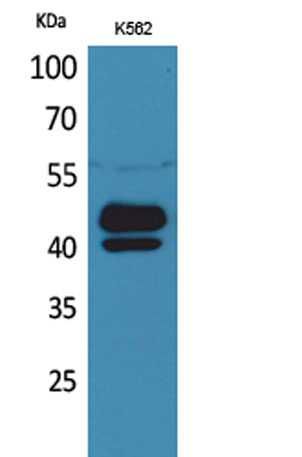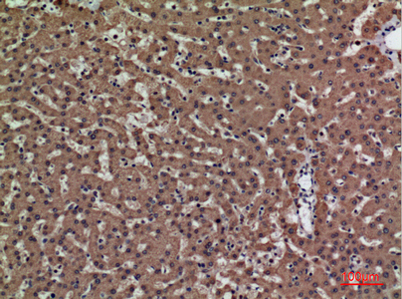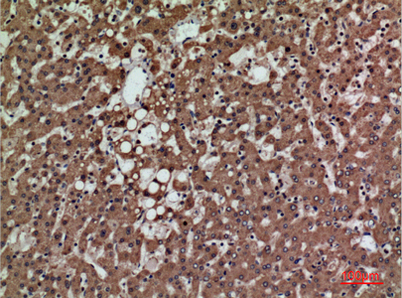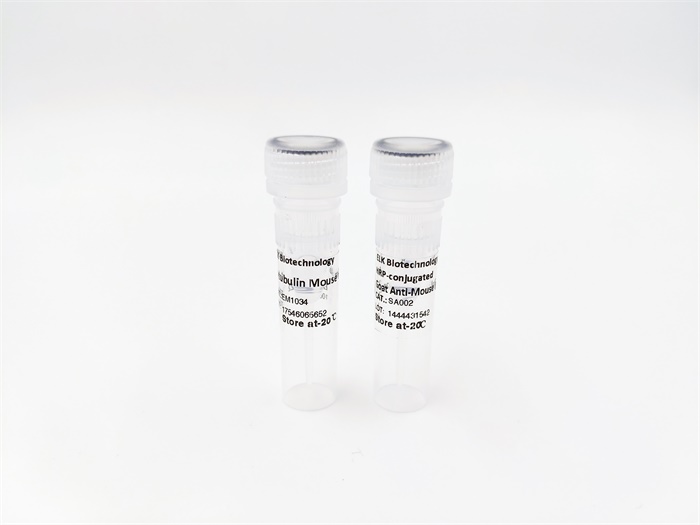








PSG1 rabbit pAb
 One-click to copy product information
One-click to copy product information$148.00/50µL $248.00/100µL
| 50 µL | $148.00 |
| 100 µL | $248.00 |
Overview
| Product name: | PSG1 rabbit pAb |
| Reactivity: | Human;Rat;Mouse; |
| Alternative Names: | PSG1; B1G1; PSBG1; PSGGA; Pregnancy-specific beta-1-glycoprotein 1; PS-beta-G-1; PSBG-1; Pregnancy-specific glycoprotein 1; CD66 antigen-like family member F;Fetal liver non-specific cross-reactive antigen 1/2; FL-NCA-1/2; PSG95; Pregnancy-specific beta-1 glycoprotein C/D; PS-beta-C/D; CD66f |
| Source: | Rabbit |
| Dilutions: | Western Blot: 1/500 - 1/2000. IHC-p: 1:100-300 ELISA: 1/20000. Not yet tested in other applications. |
| Immunogen: | The antiserum was produced against synthesized peptide derived from the Internal region of human PSG1. AA range:221-270 |
| Storage: | -20°C/1 year |
| Clonality: | Polyclonal |
| Isotype: | IgG |
| Concentration: | 1 mg/ml |
| Observed Band: | 46kD |
| GeneID: | 5669 |
| Human Swiss-Prot No: | P11464 |
| Cellular localization: | Secreted . |
| Background: | The human placenta is a multihormonal endocrine organ that produces hormones, enzymes, and other molecules that support fetal survival and development. Pregnancy-specific beta-1-glycoprotein (PSBG, PSG) is a major product of the syncytiotrophoblast, reaching concentrations of 100 to 290 mg/l at term in the serum of pregnant women (Horne et al., 1976 [PubMed 971765]). PSG is a member of the immunoglobulin (Ig) superfamily (Watanabe and Chou, 1988 [PubMed 3257488]; Streydio et al., 1988 [PubMed 3260773]).[supplied by OMIM, Oct 2009], |
-
 Western Blot analysis of K562 cells using PSG1 Polyclonal Antibody. Secondary antibody(catalog#:RS0002) was diluted at 1:20000
Western Blot analysis of K562 cells using PSG1 Polyclonal Antibody. Secondary antibody(catalog#:RS0002) was diluted at 1:20000 -
 Immunohistochemical analysis of paraffin-embedded human-liver, antibody was diluted at 1:100
Immunohistochemical analysis of paraffin-embedded human-liver, antibody was diluted at 1:100 -
 Immunohistochemical analysis of paraffin-embedded human-liver, antibody was diluted at 1:100
Immunohistochemical analysis of paraffin-embedded human-liver, antibody was diluted at 1:100

 Manual
Manual